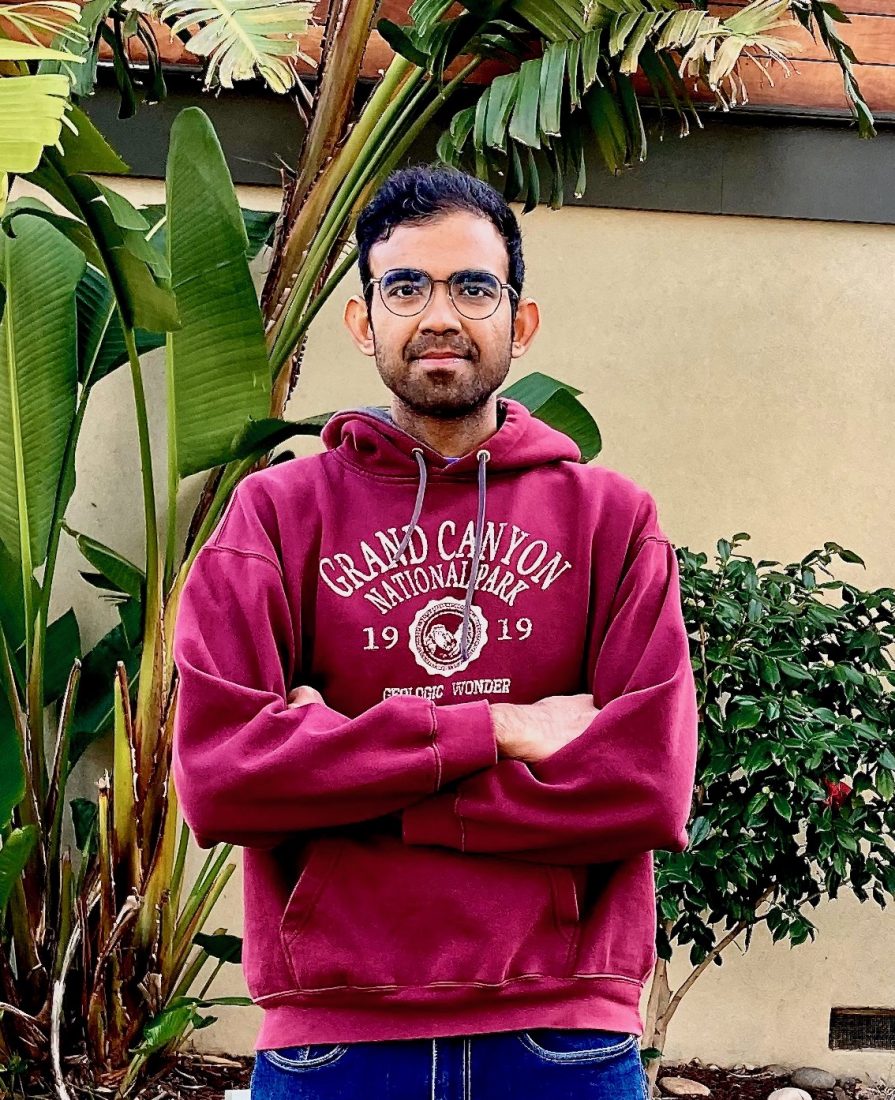Science and Mathematics
Physics Colloquium: Gautam Venugopalan
February 1, 2024 at 3:30pm – 4:45pm EST
Physics Building, PB 202/204
This event has already occurred. The information may no longer be valid.

The Syracuse University Physics Department is pleased to welcome Dr. Gautam Venugopalan, Postdoctoral Researcher at Stanford University in Stanford, California.
Dr. Venugopalan got his undergraduate degree from the Indian Institute of Technology in Madras, India. During his summers, he was lucky enough to get the opportunity to dabble in various labs, including gravitational wave detectors in Germany and the USA, attosecond physics at MPQ in Munich, and particle physics at the Belle experiment in Japan. These allowed him to sharpen my skills as an experimental physicist and helped him identify his research interests.
Dr. Venugopalan spent grad school (2015-2021) at Caltech in Pasadena, working with the LIGO group. This was a truly exciting time of many firsts (first direct detection, first multi-messenger event, etc.), and he got to learn from some of the best experimental physicists and engineers at Caltech and the LIGO observatories. During this time, he also got to visit and commission the underground Japanese gravitational wave detector, KAGRA, near Toyama.
Currently, he works at Stanford University as a postdoctoral researcher with the Gratta group, working on table-top scale optomechanical experiments that use optically levitated force sensors to search for new physics.
“Suspended Animation–Levitodynamics and Fundamental Physics”
Abstract:
Quantum-limited metrology has opened new frontiers in several landmark experiments in the last decade. The field of “levitodynamics,” where the force of gravity on an object is balanced by an external force, is one such area. Among the available levitation schemes, optical tweezers that use ultra-stable laser sources are particularly attractive as the levitated object can be exceptionally well-isolated from its environment.
Dr. Venugopalan will describe a single-beam, vertically oriented optical trapping scheme that uses ∼ 10 µm sized silica spheres to realize exquisite force sensitivity. An exciting application of force sensors of such size are to probe deviations from Newtonian gravity at the 1 µm – 100 µm length scale. The optical levitation scheme provides a complementary technique to previous searches that have largely relied on variations of mechanical springs (such as the classic Eötvös experiment). He will also describe how the versatile levitated microsphere platform was used to probe for the presence of fractionally charged particles. With a novel measurement scheme to efficiently reject electromagnetic backgrounds that often plague such measurements, they realized a sensitivity to monopole charges on the trapped object as small as ∼ 3.3 × 10−5 e.
Finally, the rich dynamics of the levitated object offers the opportunity to cool specific modes to their quantum ground state, opening the possibility of another system to testing quantum mechanics at the mesoscopic scale.
This event was published on December 19, 2023.
Event Details
- Category
- Science and Mathematics
- Type
- Talks
- Region
- Campus
- Open to
- Public
- Organizer
- CAS-Department of Physics
- Contact
- Meghan Murphy
phyadmin@syr.edu
(315) 443-3901
- Accessibility
- Contact Meghan Murphy to request accommodations
